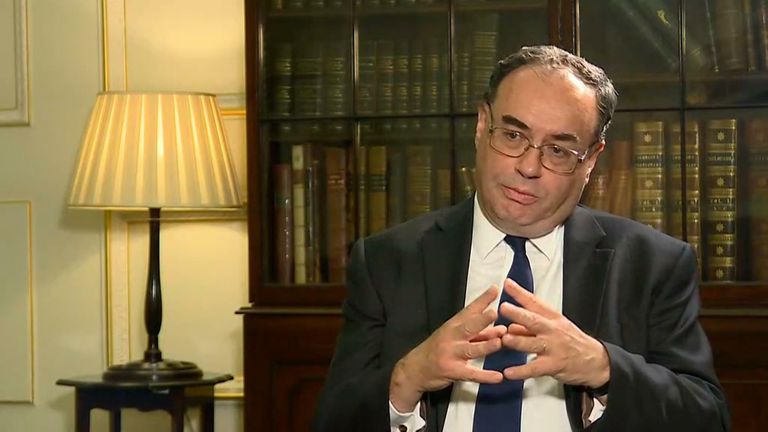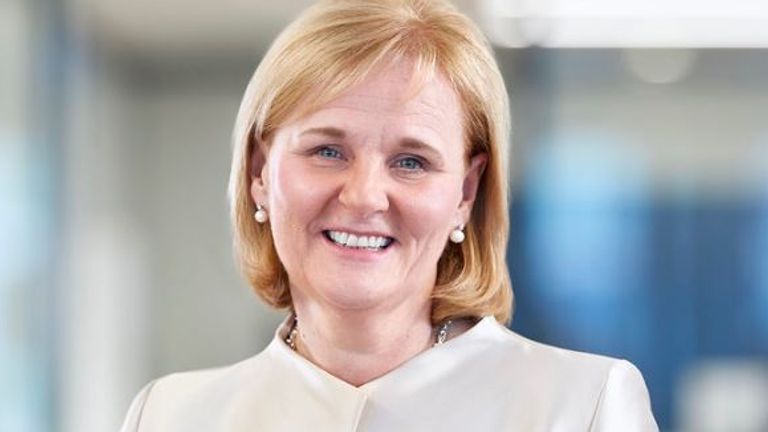Aviva, one of Britain’s biggest insurance companies, is facing an embarrassing rebuke from the City watchdog over its handling of a controversial plot to cancel high-yielding preference shares that sparked outrage among thousands of ordinary investors.
Sky News has learnt that the results of a probe by the Financial Conduct Authority (FCA) into Aviva’s plan to cancel £450m of preference shares in 2018 are close to being made public.
Sources said on Thursday that the regulator did not intend to impose a fine on the company, but that it was expected to deliver “pointed criticism” of its board’s handling of the situation.
“There will be a severe slap on the wrist over the company’s governance,” said one insider.
Aviva’s decision to cancel the preference shares at well below their market value caused uproar, and led to Andrew Bailey – the then FCA chief executive and now governor of the Bank of England – disclosing that the watchdog was examining its decision in the context of whether it had committed market abuse.
The insurance giant, which owns the old Norwich Union business and is one of the City’s largest asset managers through its Aviva Investors division, performed an abrupt U-turn within days.
It ended up having to pay £14m in compensation to investors who sold their preference shares for less than their true value.
Mr Bailey demanded that other companies considering redeeming such instruments for less than the market price make those risks clear to investors.
Preference shares are attractive to investors because of the dividends they pay regardless of a company’s performance.
The affair represented another sorry chapter for Aviva, which has lurched from one governance crisis to another in recent years – a state of affairs which has been particularly embarrassing for a company that opines so frequently on events in other blue-chip boardrooms.
Insiders said an announcement from the FCA, alongside a response from Aviva, were likely to be published in the coming weeks.
One said on Thursday that Aviva was privately furious about the regulator’s conclusions that its board had been dysfunctional in its handling of the preference share debacle.
It was unclear whether the company intended to challenge that assertion.
While there will be relief at the company that there is no financial penalty being imposed on it, the strength of the FCA’s rebuke will nevertheless be humiliating.
It is likely to be a particular embarrassment to Sir Adrian Montague, the City grandee who served as Aviva’s chairman for five years, before retiring earlier this year.
Sir Adrian, who has also chaired 3i Group, the private equity investor, recently chaired a taskforce set up to devise solutions to the debt crisis facing millions of companies in the wake of the coronavirus pandemic.
He was replaced at Aviva by George Culmer, the former chief financial officer of Lloyds Banking Group.
Mr Culmer has moved swiftly to address investors’ concerns about Aviva’s strategy, installing the former boss of AXA UK, Amanda Blanc, as its chief executive, and streamlining the group by selling non-core assets.
The resolution of the preference share issue will come five months after Mel Stride, the Treasury Select Committee chair, wrote to the FCA to seek an update on its inquiry into Aviva.
Christopher Woolard, the FCA’s acting chief executive, responded by saying that “when the FCA is proposing to exercise its regulatory enforcement powers in a contested case, the Financial Services and Markets Act 2000 requires the FCA to give statutory notices (a warning notice and decision notice) to the subject of the action”.
It was unclear on Thursday whether the rebuke being issued to Aviva constituted a formal exercising of the FCA’s powers.
The FCA declined to comment but an Aviva spokesman told Sky News: “We are not commenting on this story.
“In line with our previous comments it was a disappointing episode for which we are sorry and lessons have been learned.
“We recognise the uncertainty created for preference shareholders two years ago whilst we were considering our options and we subsequently made discretionary goodwill payments to impacted preference shareholders.”


